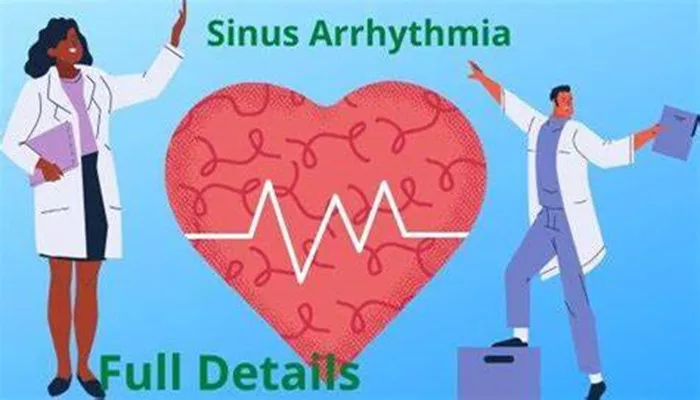Arrhythmias are irregular heartbeats that can manifest as a racing heart, fluttering, or even a complete cessation of normal rhythm. While many individuals may experience occasional arrhythmias without significant consequences, certain symptoms and conditions warrant immediate medical attention. This article aims to provide a comprehensive understanding of when to go to the hospital for arrhythmia, emphasizing key symptoms, risk factors, and the potential complications associated with this condition.
What Is Arrhythmia?
Arrhythmia refers to any change from the normal sequence of electrical impulses in the heart, leading to an irregular heartbeat. These irregularities can be classified into two main categories: bradyarrhythmias, which are slow heart rates (below 60 beats per minute), and tachyarrhythmias, which are fast heart rates (above 100 beats per minute). Both types can lead to various symptoms and complications if not addressed promptly.
Common Symptoms of Arrhythmia
Recognizing the symptoms of arrhythmia is crucial for timely intervention. Common symptoms include:
Palpitations: A feeling of fluttering or pounding in the chest.
Dizziness or Lightheadedness: A sensation of faintness that can occur with rapid heartbeats.
Shortness of Breath: Difficulty breathing during rest or physical activity.
Chest Pain or Discomfort: Pressure or tightness in the chest area.
Fatigue: Unusual tiredness that does not improve with rest.
Syncope: Temporary loss of consciousness or fainting.
SEE ALSO: How Does Ischemia Cause Arrhythmia?
When to Go to The Hospital
While some arrhythmias may be benign, certain situations necessitate immediate medical attention. The following criteria can help determine when to seek hospital care:
1. Severe Symptoms
If you experience any of the following symptoms, it is essential to seek emergency care:
Chest Pain: Pain, pressure, or tightness in your chest that lasts more than a few minutes.
Severe Shortness of Breath: Difficulty breathing at rest or during minimal exertion.
Fainting or Near-Fainting Episodes: Loss of consciousness or feeling close to fainting.
Rapid Heart Rate: A heartbeat exceeding 150 beats per minute that does not normalize.
2. Risk Factors for Serious Conditions
Certain risk factors increase the likelihood that an arrhythmia may lead to serious complications. These include:
Age Over 50: Older adults are at higher risk for cardiovascular issues.
History of Heart Disease: Previous diagnoses such as coronary artery disease, heart failure, or structural heart defects increase risk.
Family History of Sudden Cardiac Death: A family history may indicate a genetic predisposition to serious arrhythmias.
3. New Onset Symptoms
If you experience new or unexplained symptoms such as palpitations that last for more than a few minutes, it is advisable to consult a healthcare professional. New onset symptoms can indicate a change in your heart’s health and should not be ignored.
4. Chronic Conditions
Individuals with chronic conditions such as diabetes, hypertension, or previous heart disease should be particularly vigilant about changes in their heart rhythm and seek care if they notice any concerning symptoms.
Diagnostic Procedures in The Hospital
Upon arrival at the hospital with suspected arrhythmia, healthcare providers will typically perform several diagnostic tests to assess your condition:
Electrocardiogram (ECG): This test records the electrical activity of your heart and helps identify arrhythmias.
Holter Monitor: A portable ECG device worn for 24 hours or longer to capture irregularities during daily activities.
Echocardiogram: An ultrasound test that visualizes heart structures and assesses function.
Blood Tests: To check for underlying conditions such as electrolyte imbalances or thyroid issues.
Potential Complications of Untreated Arrhythmias
If left untreated, arrhythmias can lead to serious complications, including:
Stroke: Irregular heartbeats can lead to blood clots forming in the heart, which may travel to the brain.
Heart Failure: Prolonged arrhythmias can weaken the heart muscle over time.
Sudden Cardiac Arrest: Life-threatening arrhythmias like ventricular fibrillation can cause the heart to stop beating.
Management And Treatment Options
Once diagnosed with an arrhythmia, treatment options will depend on its type and severity. Common management strategies include:
Medications: Antiarrhythmic drugs help control heart rhythm; anticoagulants prevent blood clots.
Cardioversion: A procedure that restores normal rhythm using electric shocks.
Catheter Ablation: A minimally invasive procedure that destroys small areas of heart tissue causing abnormal signals.
Implantable Devices: Pacemakers regulate slow heart rates; implantable cardioverter-defibrillators (ICDs) prevent life-threatening arrhythmias.
Conclusion
Understanding when to seek hospital care for arrhythmia is vital for ensuring timely intervention and preventing severe complications. If you experience severe symptoms such as chest pain, shortness of breath, or fainting, do not hesitate to seek emergency medical help. Regular check-ups and monitoring are essential for individuals with known risk factors or existing cardiac conditions.
Related topics:


